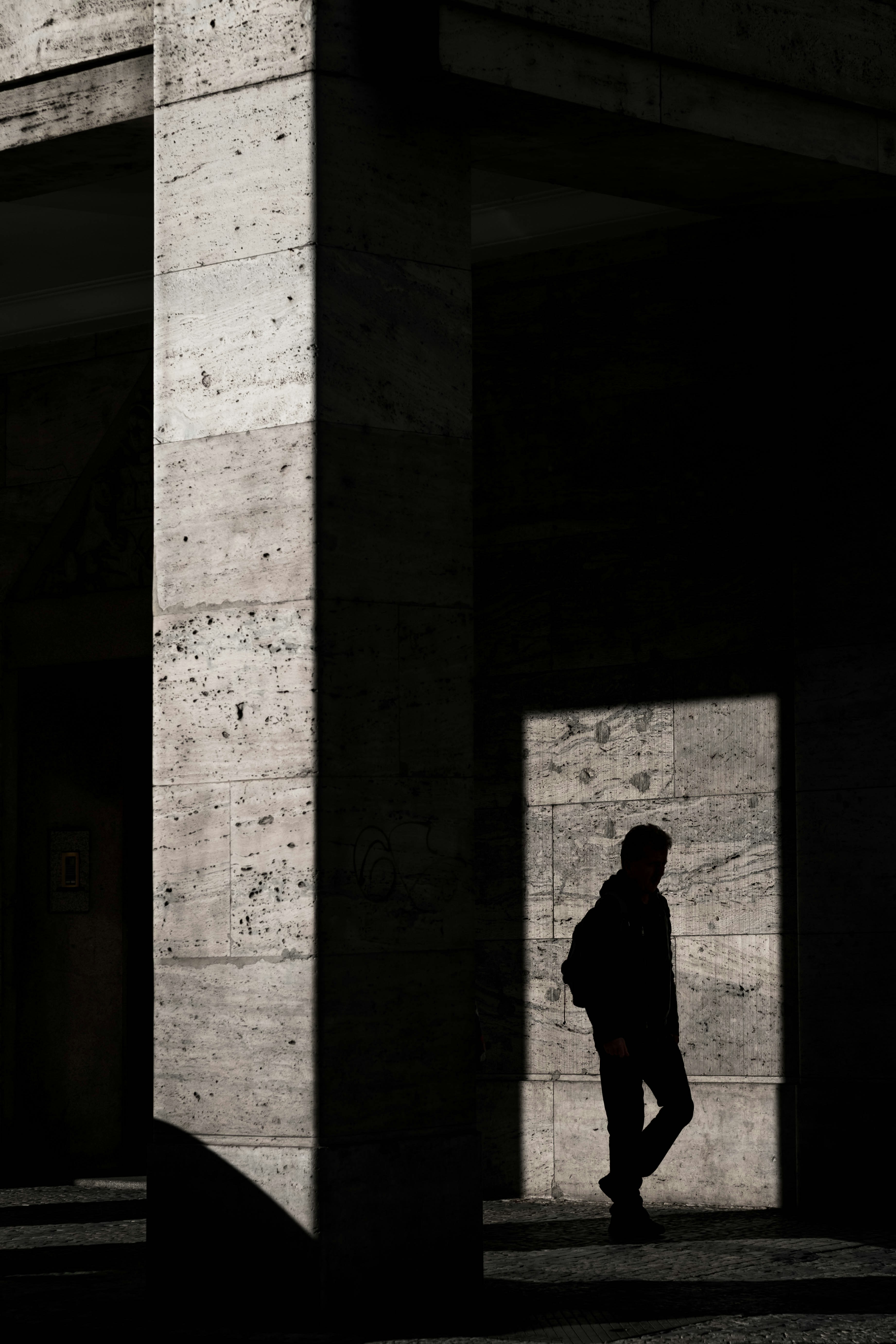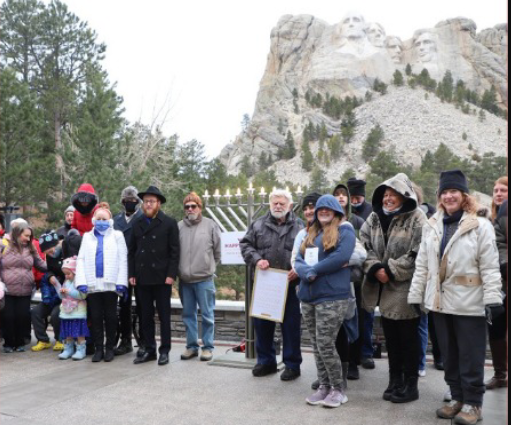September 25, 2025|ג' תשרי ה' אלפים תשפ"ו Rosh Hashana 5786 - Day 1 - Its Not Too Late
Print ArticleIn the late 1700s, a wedding took place near Mezebush, a town in Ukraine, and the Mesader Kiddushin was none other than the Baal Shem Tov, the founder of Chassidus.
The Baal Shem Tov arrives at the wedding and is standing under the chuppah, ready to begin. All of a sudden a wagon that was passing by stops, and a person in that wagon sticks his head out to see what's going on. The Baal Shem Tov takes notice of that person in the wagon, the Baal Shem Tov turns to the chosson and kallah and says excuse me I have to take care of something I'll be one minute. They stop the wedding and he runs to the wagon, says something to the person in the wagon for 30 seconds. The wagon goes on, the Baal Shem Tov comes back and they continue with the wedding.
We know that there is an incredible amount of discussion in Chazal about the power of the sound of the Shofar.
And yet, in Areshes Sifaseinu, the Tefillah we recite after each time we blow the shofar during Chazaras HaShatz, we refer to Hakadosh Baruch Hu as "מַבִּיט וּמַאֲזִין," we note that not only does Hakadosh Baruch Hu hear/listen to the sound of the Shofar, but that He is Mabit, He looks!
What does it mean that Hashem looks at the Shofar? I thought the shofar is all about the sound?!
I want to share with you an approach to this question that I heard from Rav Eitan Schnall, a Maggid Shiur at Yeshiva University.
The Shulchan Aruch, building off the gemara in Rosh Hashana, has an elaborate conversation not only about the sound one makes with the shofar, but also about how the shofar must look.
Part of process of creating a shofar is that it has to be hollowed out, it is heated it up, and it becomes malleable.
The Shulchan Aruch in 586:12 raises many questions about the shape of the shofar, and I want to focus on two of them:
1) What if you change the construction of the shofar, making the narrow end wide and the wide end became narrow?
2) What if someone decides to turn the shofar inside out, again while hot and malleable, placing the inside of the shofar on the outside and vice versa. It would be able to make the same sound, just look different.
The answer to both questions is no. And the Mishna Berura explains that the reason for all of this is that the shofar has to remain in its appearance as it grows on the animal. Derech Havaraso.
And the question, of course, is why? If the entire goal of the shofar is to hear it's sound, why does it matter what the shofar looks like?!
We know that the word for something tells us about its essence.
However, the Ramban on the gemara in Rosh Hashanah (27a) which discusses these different halachos, notes that the word Shofar comes from the same root as the word שְׁפוֹפֶרֶת, which means a pipe, a tube, or even a passageway. This, of course, needs more explanation.
Rav Moshe Alshich once came to the Arizal, desperate for help with his son who had decided he no longer wanted to live a life of Torah & Mitzvos. The Arizal gave the Alshich special language to use during the bracha of Hashiveinu, the tefillah we say every day in Shmone Esrei, asking Hashem to accept our Teshuva.
And the tefillah is as follows: Yehi Ratzon milfanecha Hashem Elokai V'Elokai Avosai—It should be Your will, Hashem my God, and the God of my ancestors—Shetachtor chatira tachas kisei kevodecha—that You should dig a passageway under Your throne—usikabel b'teshuva es ploni ki mincha pshuta l'kabel shavim—and accept the teshuva of x, y, or z person. Because You always extend Your hand to accept those who reach out in teshuva.
This passageway under the Throne of Hashem, is a reference to a gemara in Sanhedrin. There, the gemara tells the story of King Menashe, who was an absolutely terrible king for the Jewish People. During his time as Melech Yisrael, there was rampant Avoda Zara, Menashe even had his uncle Yeshaya HaNavi killed.
At end of his life, Menashe wanted to do teshuva, but the Malachei HaShareis told Hashem, "You can't take him back! He's had such a tragic and devastating effect on the Jewish people!"
But Menashe continued to push and try and daven, so the gemara says:
אָמַר רַבִּי יוֹחָנָן מִשּׁוּם רַבִּי שִׁמְעוֹן בֶּן יוֹחַי: מַאי דִּכְתִיב "וַיִּשְׁמַע אֵלָיו וַיֵּחָתֶר לוֹ"? "וַיֵּעָתֶר לוֹ" מִיבְּעֵי לֵיהּ!
Rabbi Yochanan says in the name of Rav Shimon Bar Yochai—The pasuk says about Menashe's tefillah to Hashem—"And Hashem listened to him and Yechater Lo"—literally dug for him! It should have said, Yeiater lo—Hashem responded to Him!?
מְלַמֵּד שֶׁעָשָׂה לוֹ הַקָּדוֹשׁ בָּרוּךְ הוּא כְּמִין מַחְתֶּרֶת בָּרָקִיעַ, כְּדֵי לְקַבְּלוֹ בִּתְשׁוּבָה, מִפְּנֵי מִדַּת הַדִּין.
This teaches that Hashem made a special passageway for Menashe through the heavens, to accept his teshuva, to subvert the Midas HaDin, the Attribute of Justice.
The point being, that the midas hadin, the attribute of justice—whatever that means exactly—would not allow Menashe's teshuva to be accepted, so Hashem created a special, secret passageway to accept his teshuva.
This can explain our original question: Why do we care about how the shofar looks!?
Argues Rav Schnall the Shofar symbolizes that passageway. And as we blow the shofar, we are meant not only to hear its sound, we are meant also to see its shape! To see what seems like a narrow passageway, the symbol of that avenue that Hakadosh Baruch Hu opens wide for all of us, no matter what we have done, no matter how far away we might feel.
It's not an emergency exit. It's not a golden buzzer, taking you straight through with no effort. It's a difficult journey that starts narrow, but as you continue through, like the shofar, it begins to widen, to open up, and we begin to see the light of day.
It's a reminder that if we're willing to get started, Hashem is ready to take us back.
All the Talmidim of the Baal Shem Tov were confused by what happened at the wedding, to interrupt a wedding it must be that the person in the wagon was one of the 36 hidden tzadikim! The chassidim decide that they want to find this person to get a bracha from this special Tzadik!
After the wedding is over, they begin to search all over town for this person, but they can't find him anywhere. Two weeks later, they are in a neighboring town, and they see the wagon in front of a house! They are so excited, they run up to knock on the door.
They get out, they knock on the door and a regular looking Jew opens the door. The Chassidim asked him, "sorry to bother you, but is that your wagon outside?" He says yes. They say let me ask you a question. Were you in that town for a chasuna about a week or 2 ago and the Baal Shem Tov came to talk to you? "Yes, that was me." The chassidim ask "Please give us a Bracha!" He answers, "I'm just a normal guy you don't want my bracha!" If the Baal Shem Tov was willing to stop the wedding and speak to you, clearly you're not just a regular person! "I'm telling you I'm a nobody and am just a regular guy you don't want a bracha from me."
"So then if you're a regular person what's your story, why would the Baal Shem Tov stop the wedding? What did he tell you?" He begins to blush a little and says he'd rather not talk about it. The chassidim say "We were looking for you for over a week, we're not leaving until we hear this story. Who are you, what did the Baal Shem Tov say to you?"
He says okay if you need to know here's the story. I have a neighbor across the street. We get along nicely but aren't the best of friends. The way his business runs is that he's out for business for 3 to 4 months a year and whatever he brings back in that time is how he supports his family for the rest of the year.
It happens to be that a couple of weeks ago I was at home, a day just like today. And it happens to be the day that my neighbor came home from his business trip. I see from my window that this man came back with a big sack with all the money he made on this trip. I see that he puts this bag on the front porch and walks into his house. I assumed that he was going to come back immediately to take the money, what if someone were to take the money and all his parnossah was lost? I was thinking to myself how irresponsible this is and that someone should teach him a lesson. I said you know what I'm going to do, I'm going to teach him a lesson. I'm going to take it for a few minutes so he comes out and gets scared just for a little then I'll teach him that it could've been real and he'll learn to never do that again.
I ran over across the street, took the bag into my house and I waited a couple of minutes. All of a sudden I hear screaming, "A ganav, a ganav someone stole my money!" The neighbor's wife hears and comes out to see what happened. He explained how someone took all the money he just worked hard for. I was planning on only facing the husband now there's his wife, and other neighbors are getting together to try to help find the ganav. It's getting crazy. People are starting to accuse each other. So I said, let me hold on to the money overnight. It was a bad idea, I'll give it to the neighbor in the morning when things calm down.
On the way to shul I see signs all over about returning the bag of money with a reward that people put together. Everyone was talking about it in shul. I became paranoid when anyone would say good morning. I would assume they're all suspecting me. I couldn't sleep, I couldn't eat. I got to a point where I thought I just have to move. No one knows this secret. His wife doesn't know. It's making me crazy.
One day I decided to get in my wagon and just go. Just to get out of town, to clear my mind before I make any rash decisions. I got into the wagon and travelled randomly. I ended up in this shtetl and happened to notice there's a huge wedding going on. I just stopped to watch. Meanwhile the mesader kiddushin notices and makes eye contact with me. At that moment I froze, there was something magnetic about those eyes. He approached me and what he said to me changed my life.
What did the Baal Shem Tov say? He didn't ask any questions.
All he said was one simple sentence: It's not too late. Whatever you think you can't fix, it's not too late!
I was so taken aback by those words and I said to myself he's right! It's not too late! I can fix this!
Those simple words of the Baal Shem cut through the clouds and confusion. It's not too late. I went back to town, gathered all my strength and went to admit what I did. I was expecting my neighbor to punch me in the face and maybe call the cops. But you know what? This is the right thing to do. I went there, he opened the door, and I started crying, and I explained what a mistake I had made. Instead of punching me, the man hugs me and thanks me for telling him the truth!
Looking back at the chassidim in front of him, the man said, your rebbe changed my life with those four words: "It's not too late."
So often, we come into Rosh Hashana, and we say to ourselves, "what am I even doing here? I've made my choices, I am what I am, and it's too late for me to make any type of real, meaningful change."
Comes the shofar, not only it's sound, but also it's shape, it's narrow end, which opens much wider, to remind us that it's never too late. If we're willing to get started, to take that first step forward, a step that may feel almost impossible because we feel so stuck in how things have always been, know that eventually things will open up, the path will widen, and the light will shine.
And, in fact, this is why the perek of Tehillim we read before blowing the shofar is: Lam'natzeiach Livnei Korach! The sons of Korach, Chazal tell us, were standing right alongside their father, but as the earth opened up, they decided to do teshuva, and they were saved at the very last minute! They are the living example, that no matter how far we have fallen, we are never too far, and it is never too late!
Whether it is a relationship with a friend or relative that has soured, or whether we feel we have lost our way in our relationship with Hashem. Whether we've felt distant for the past year or the past decade, the shofar reminds us that there is always a passageway waiting for us to bring us back. It is our reminder that no matter where we have been, we are never too far, and it is never too late.




